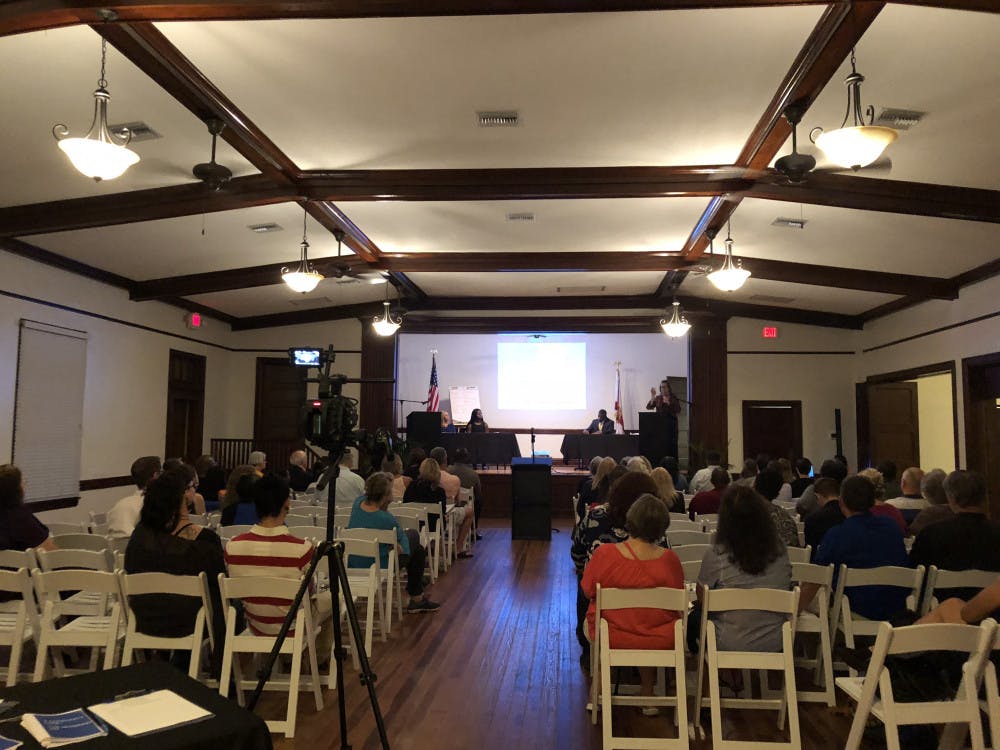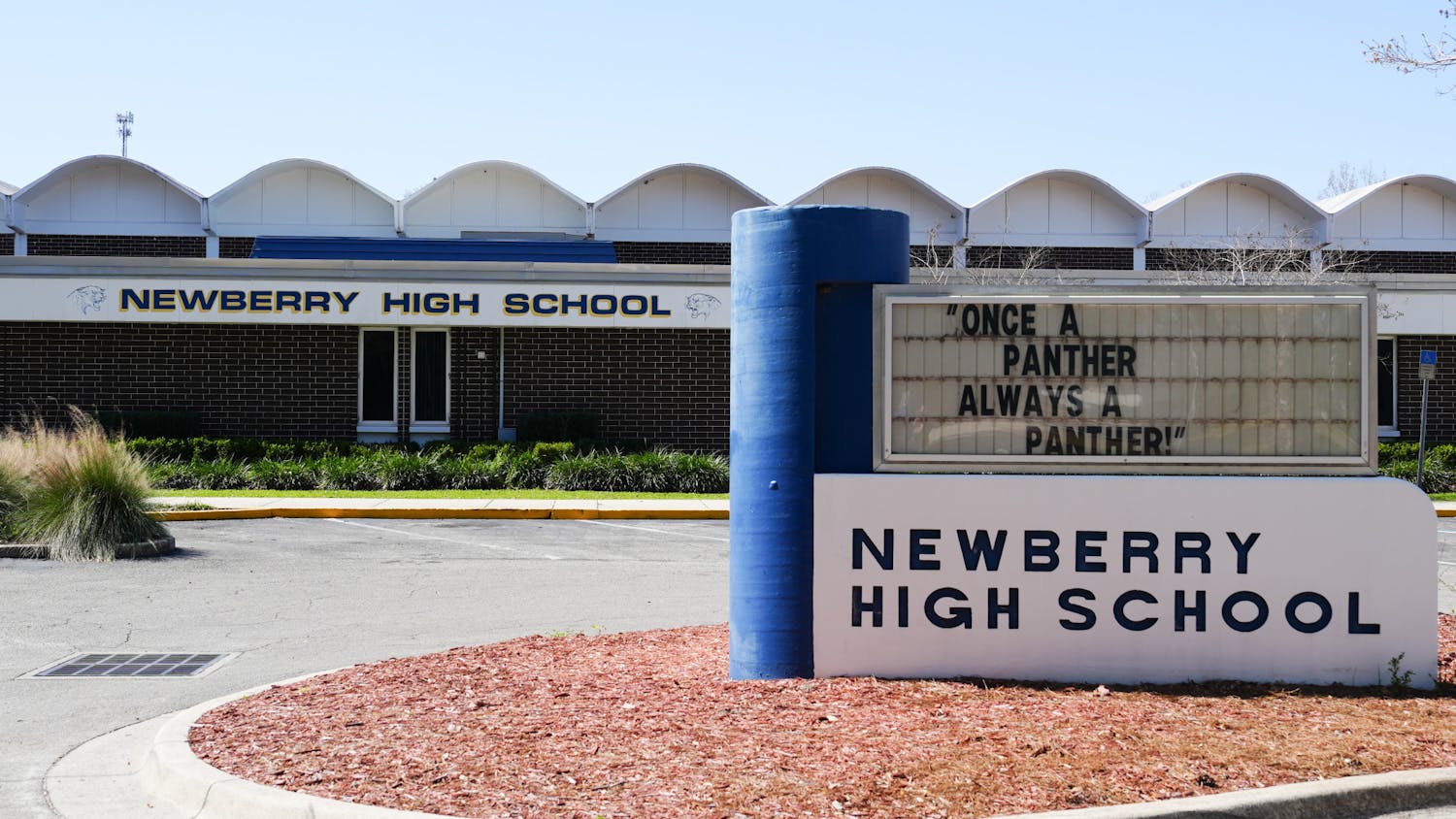At first the only sound in the room came from the seven fans above the crowd working overtime in the evening summer heat.
Then one voice broke the silence.
“Horror.”
Then another.
“Sadness.”
From there, community members let emotions spill out into the air as they stared at photos of various lynchings from around the country and heard detailed testimonies from historians and descendants of the victims.
“Guilt.” “Disappointment.” “Shame.” “Ungodly.” “Responsible.”
For the first time, Newberry residents came face-to-face with the ugly past of the city, a reckoning that has been 102 years in the making.
About 60 people gathered at the Newberry Municipal Building Thursday to discuss “The Newberry Six,” a group of African-Americans who were lynched in Newberry in 1916. The discussion, which was the brainchild of Newberry Mayor Jordan Marlowe, challenged community members to acknowledge their past and work together to build a better future for Newberry.
Zach Jones, a Newberry resident, eased the tensions in the room by encouraging humility, grace, and most importantly, questions.
“We’re not here to make anyone pay for the sins of their ancestors,” Jones said.
Cathy Atria, a professor of educational practice at UF, spoke on the truth and reconciliation model created by Nelson Mandela for apartheid South Africa and how it could be used as a template of healing for the Newberry community. The commission brought forth racial healing through education about the human rights violations.
“If you look at these emotions you’ve all shared,” Atria said, “that’s heartwork.”
Janis Owens, a novelist, gave a brief history of the lynchings of Jim Dennis, Stella Young, Mary Dennis, Bert Dennis, the Rev. J.J. Baskins and Andrew McHenry.
She described how the bodies were strung up on an oak tree before a crowd of 3,000 people. Children passed the bodies swaying back and forth like swings on a playground, Owens said.
Following Owens’ presentation, nine people made comments. They expressed amazement at the number of people gathered for the event and others apologized for the sins of their forefathers.
Mayor Marlowe said that this event was only the first in a series meant to promote healing. The community will meet again on Nov. 18 at Lois Forte Park to break bread together following Sunday services.
Angel Hunt, student body vice president at Newberry High School, said though the lynchings occurred only a quarter mile from her home, the topic has felt taboo.
“It is almost treated like a forbidden story we cannot tell,” she said.
Hunt believes that with knowledge, Newberry can work to ensure a better future.
“We are not afraid of the truth,” she said.
Novelist Janis Owens describes the events leading up the lynching of “The Newberry Six.” Newberry community members gathered Thursday to discuss the city’s history of racism.





